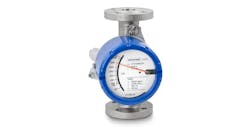The American Society of Civil Engineers (ASCE, www.asce.org) released its 2009 Report Card for America’s Infrastructure — assigning a cumulative grade of D to the nation’s infrastructure and noting a five-year investment need of $2.2 trillion from all levels of government and the private sector. Since ASCE’s last assessment in 2005, the ASCE says there has been little change in the condition of the nation’s roads, bridges, drinking water systems and other public works, and it says the cost of improvement has increased by more than half a trillion dollars.
"Crumbling infrastructure has a direct impact on our personal and economic health, and the nation’s infrastructure crisis is endangering our future prosperity," said ASCE president D. Wayne Klotz, P.E., F.ASCE, in a prepared statement "Our leaders are looking for solutions to the nation’s current economic crisis. Not only could investment in these critical foundations have a positive impact, but if done responsibly, it would also provide tangible benefits to the American people, such as reduced traffic congestion, improved air quality, clean and abundant water supplies and protection against natural hazards."
ASCE’s 2009 Report Card for America’s Infrastructure provides an assessment of the condition and need for investment in 15 infrastructure categories, including, for the first time, levees. While there has been some improvement in energy since 2005, overall conditions have remained the same for bridges, dams,
drinking water, hazardous waste, inland waterways, public parks and recreation, rail, schools, solid waste and wastewater, and have worsened in aviation, roads and transit, according to the ASCE report. Security, a category that was added to
the Report Card in 2005, and which received an incomplete grade, has been removed from the list of assessed categories and added into the methodology used to assess each individual category.
Grades ranged from a high of C+ for solid waste to a low of D- for drinking water, inland waterways, levees, roads and wastewater.
The Report Card also presents five key solutions for raising the nation’s infrastructure GPA. These include:
· Increasing federal leadership in infrastructure;
· Promoting sustainability and resilience;
· Developing federal, state and regional infrastructure plans;
· Addressing lifecycle costs and ongoing maintenance; and
· Increasing and improving infrastructure investment from all stakeholders.
To view the ASCE’s Report Card for America’s Infrastructure, visit www.asce.org/reportcard.

